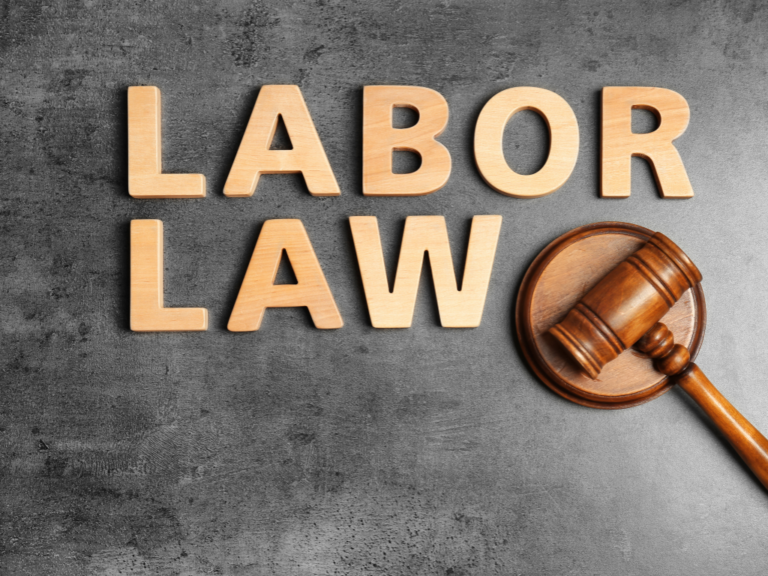Call us now:
The regulations for resolving collective labor disputes in Vietnam differ between disputes over rights and disputes over interests.

What is a Collective Labor Dispute?
A collective labor dispute is a type of conflict that arises between the organization representing the employees, such as a trade union, and the employer over general issues affecting the rights and interests of the collective workforce. These issues include working conditions, wages, benefits, and other working conditions based on the content of collective labor agreements, labor contracts, or relevant labor laws. There are two main types of collective labor disputes: disputes over rights and disputes over interests.
Examples of Collective Labor Disputes in Vietnam
Example of a Collective Labor Dispute Over Rights in Vietnam:
An example might be a situation where employees and their trade union believe that the employer has violated the terms of the labor contract or collective labor agreement related to working hours. For instance, the trade union may oppose the employer requiring employees to work overtime without paying the agreed-upon overtime wages. In this case, the dispute is not about establishing new working conditions but ensuring that the employer complies with existing regulations and agreements on working hours, overtime pay, and other related terms agreed upon in the labor contract or collective labor agreement.
Example of a Collective Labor Dispute Over Interests in Vietnam:
A typical example might occur when a trade union representing the employees demands wage increases and improved working conditions such as occupational safety and health insurance. In this case, the trade union may begin negotiations with the employer to negotiate new working conditions, including higher wages and better health insurance policies for employees.
If the employer refuses to meet these demands or if negotiations do not reach a satisfactory result, the trade union may decide to organize a strike as a measure to increase pressure. The goal of the strike is to make the employer recognize the importance of the employees and agree to a new, more favorable agreement for both parties, especially regarding wages and other working conditions such as occupational safety and benefits.
How are Collective Labor Disputes Resolved in Vietnam?
Resolving Collective Labor Disputes Over Rights in Vietnam:
The authorities responsible for resolving conflicts in collective labor disputes over rights include labor mediators, labor arbitration councils, and people’s courts.
Before bringing the case to the labor arbitration council or court, the dispute must go through a mediation process conducted by a labor mediator. If the mediation process does not achieve results or the mediation period expires without conducting mediation, the disputing parties can choose between bringing the case to the labor arbitration council for resolution or filing a lawsuit with the competent people’s court.
The statute of limitations for requesting labor mediator mediation is six months. The statute of limitations for filing a lawsuit with the labor arbitration council is nine months. The statute of limitations for filing a lawsuit with the court is one year. These periods are calculated from the date the violation is discovered.
Resolving Collective Labor Disputes Over Interests in Vietnam:
The authorities responsible for resolving collective labor disputes over interests are labor mediators and labor arbitration councils.
Resolving collective labor disputes over interests requires mediation by a labor mediator before filing a lawsuit with the labor arbitration council or conducting a strike. If mediation is successful, the agreement must be detailed in a memorandum signed by both parties and the mediator, with the same legal value as a collective labor agreement. If mediation is unsuccessful, not conducted within the prescribed period, or if the mediation agreement is not implemented, the parties can file a lawsuit with the labor arbitration council or organize a strike.
A strike is considered the last resort when mediation fails or the arbitration council’s decision is not implemented. The steps for conducting a strike include gathering opinions, notifying, and carrying out the strike according to regulations.
Contact Us Now:
DCNH LAW
Address: 38B Tran Nhat Duat, Phuoc Hoa ward, Nha Trang city, Khanh Hoa province, Vietnam.
Phone: (+84) 343320223 – 974278893
Email: dcnh.law@gmail.com




